- Lesson Plans
- Presentations
- Test Questions
- Privacy Policy


Parts of an Action Research and How to Conduct
What action research is and is not.
| •A process that improves education through change | •Problem-solving |
| •Collaborative | •Doing research on or about people |
| •Cyclical | •Linear |
| •Practical and relevant | •Conclusive |
| •Within the context of teacher’s environment | •Generalizing to larger populations |
| •How we can do things better | •Why we do certain things |
| •Explores, discovers and seeks to find creative solutions | •The implementation of predetermined answers |
| •A way to improve instructional practice by observing, revising, and reflecting | •A fad |
The Action Research Process
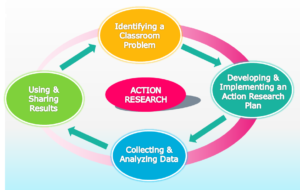
INITIAL STEPS
IN CONDUCTING AN
ACTION RESEARCH
STEP 1: MAKING THE COMMITMENT TO INQUIRY
- A professional stance
- A way of learning about your classroom
- A way of learning about yourself as a teacher
- Using the 5whQ
- Possible questions:
Why do the boys in my class….?
What happens when I …..?
I wonder what happens when I …..?
Starting points to identify an issue you would like to research (Caro-Bruce, 2000):
Sometimes it helps to use a variety of questions such as:
I would like to improve ____________________________________
I am perplexed by________________________________________
I am really curious about __________________________________
Something I think would really make a difference is ___________
Something I would like to change is _______________________
What happens to student learning in my classroom when I _____?
How can I implement ____________________________________?
How can I improve ______________________________________?
Step 2: Read , Research, Reflect
- Framing a good question
Avoid yes or no questions
Avoid questions to which you already know the answer
- A good question is
free of educational jargons,
use simple everyday words ,
do not prejudge the result
Characteristics of Good Research Questions
A good classroom action research question should:
- Be meaningful, compelling, and important to you as a teacher-researcher.
- Be manageable and within your sphere of influence.
- Be important for learners.
- Benefits your students by informing your teaching and the curriculum, by providing new insights about students and their learning , by broadening and deepening your perspectives, or by improving practice.
- Lead to taking an action
- What happens to the quality of student writing when I implement peer editing in my English classes?
- How does the use of computers affect the student writing process in my class?
- What happens to student understanding of specific geometrical concepts when I incorporate exploratory exercises into the teaching of geometry in my classroom?
- What happens to students’ academic performance in the classrooms when the school observes the heterogeneous system during cooperative learning activities?
Conducting a Literature Review (Holly, Arhar, and Kasten ,2005)
- Read broadly and generally, at first, then read more narrowly.
- When you are researching a novel topic that seems to have few resources, look for related topics and then synthesize them.
- Consult primary resources as possible.
- Ask for help.
- Read enough to get started, but not so much that you become too exhausted to conduct your study .
- Read with a critical eye.
Step 3: Make changes or try a new idea
What are you going to do?
How will you measure the result?
Identifying Data Sources
- Why are we collecting the data?
- How are the data related to the research question?
- What kind of data will yield the best information? What counts as data?
- What data will we collect? How much data will we collect? Will data be easy or difficult to collect?
- Who will be using the data?
- What data sources will we use to collect information?
- How will the data be collected and analyzed? How systematic will data collection be?
- How will the data be organized? How will the data be displayed?
- What criteria will be used to analyze the data?
- How will the data be recorded and shared?
Step 4: Evaluate and Reflect
How can you be sure that your conclusions are fair and accurate?
Step 5: Improve or amend your practice
How will I do things differently?
What have you learned from the project?
Have your questions been answered?
How will you share the results?
Could they be useful to others in your school/ community?
Context and Rationale of the Study
- Cite Literature review
- What is the general situation/circumstance that makes you develop your research proposal?
- Why is this situation/ circumstance important?
- What do you intend to do?
- This is the aim of your study. This should also be embedded in your main arguments.
- The significance of your research
- Why is your study important?
- Who or what industry will benefit? Why?
- What would be the potential contribution or insight of my research?
ACTION RESEARCH QUESTIONS
Reflect on your experiences and identify the most critical problem that affects your students’ learning
PROPOSED INTERVENTION, INNOVATION, STRATEGY
- Explain the intervention and cite literature that supports /validate the strategy to be used
- The teacher-researchers will develop an M.A.D (Modified Awareness Design) Tool : Contextualized and Localized Instructional Learning Material with seven (7) lessons where its objectives are based on the least mastered skills. The development of the IM anchors the simplified process of ADDIE Model which follows: Phase I – Preparation, Phase II – Development, Phase III – Validation, Phase IV – Try-Out.
Methodology
* PARTICIPANTS – All Grade 8 OHSP learners will serve as the respondents of this study.
* SOURCES OF DATA/ INFORMATION – The following are the data collection tools which will be utilized this study:
- Research constructed questionnaire
- Pretest/ post-test
- Summative test scores
* DATA GATHERING METHODS
- In developing the instructional learning material, the concept of ADDIE will utilize where:
- Phase I- The preparation stage involves administering the pretest using the teacher-made test validated by the Grade 8 teachers. It will use to determine the least mastered skills of the Grade 8 OHSP learners. The contents and components of the MAD Tool: Contextualized and Localized IM will base on the result of the pretest.
- Phase II – The development stage involves the following phases; deciding on the format of the module, the process of writing the module and the initial revisions needed to improve the first draft of the module.
- Phase III – In the validation stage, English teachers (peers and experts) will ask to assess the module in terms of its objectives
Plans for Dissemination and Utilization
- The results of the study will be presented and disseminated during learning action cells , teacher’s quality circle , conference after the study and will be presented through infographics which will be part of the initiatives of the school administrators and the subject area teachers.
Teachers must continue to give frequent positive feedback that supports pupil’s beliefs that they can do well; ensure opportunities for student’s success by assigning tasks that are either too easy nor too difficult; help students find personal meaning and value of the material; and help students feel that they are valued members of a learning community.
Sample of Reflection
As I reflect on my first journey as a teacher-researcher, I breathe a sigh of relief. The light at the end of this long, winding tunnel is finally in sight. I found the process of conducting an action research project very complex and often overwhelming. However, at the same time, I found it to be extremely enlightening and rewarding.
It is self-perception about the study.
Best, J.W., & Kahn, J.V. (1998). Research in education (8th ed.). Needham Heights, MA: Allyn and Bacon.
Borg, W. (1981). Applying educational research: A practical guide for teachers. New York: Longman.
Brennan, M., & Williamson, P. (1981). Investigating learning in schools. Victoria, Australia: Deakin University Press.
Calhoun, E.F. (1994). How to use action research in the self-renewing school. Alexandria, VA: Association for Supervision and Curriculum Development.
Cochran-Smith, M., & Lytle, S.L. (Eds.). (1993). Inside/outside: Teacher research and knowledge. New York: Teachers College Press.
Corey, S.M. (1953). Action research to improve school practices. New York: Teachers College Press.
Johnson, B.M. (1995, Fall). Why conduct action research? Teaching and Change,1, 90-105.
source: SDO Las Pinas
RELATED ARTICLES MORE FROM AUTHOR
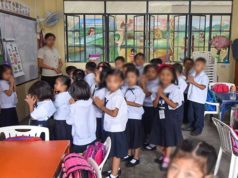
Senators press DepEd to Resume Face-to-face Classes
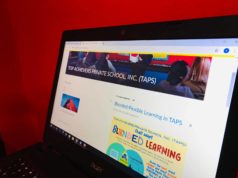
Globe prepares Top Achievers Private School Inc. for the new normal of digital learning

Duterte: No opening of classes without vaccine in the midst of pandemic
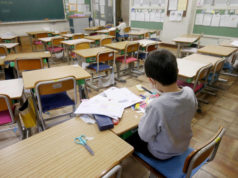
Navotas Mayor requested the Department of Education (DepEd) to pass all students for the school year amid the coronavirus outbreak
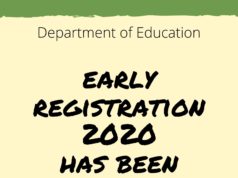
Early Registration for SY 2020-2021 has been moved to February 1

Brief History of the Philippines Folk Dances
Useful articles, list of passers: teachers board exam (let) march 2017 results.
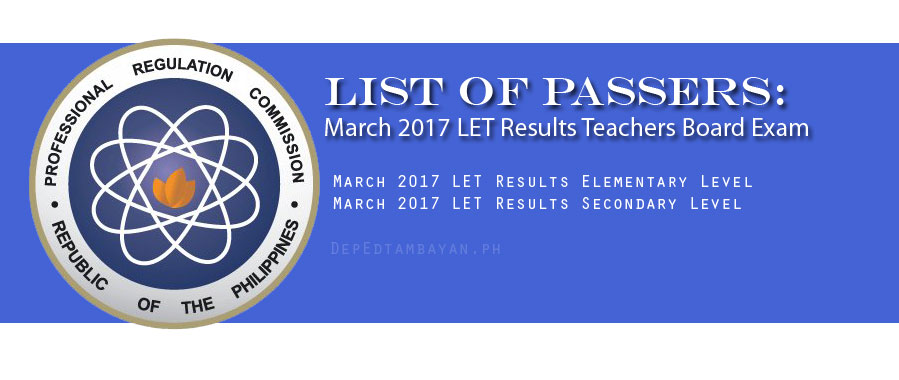
DepEd K to 12 Curriculum Guides Free Complete Downloads
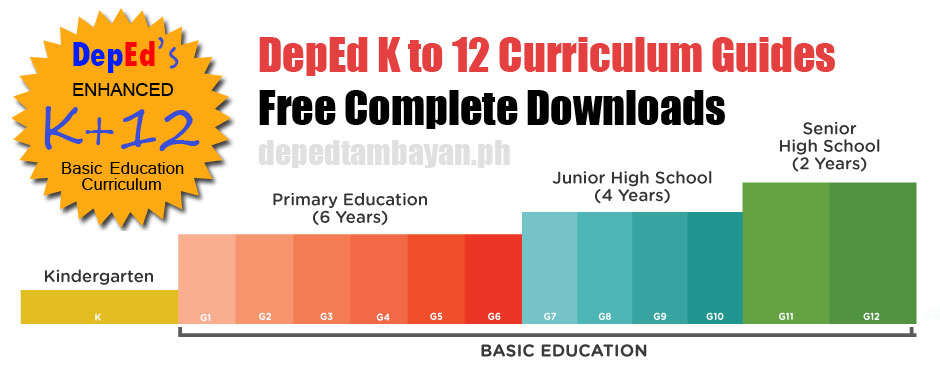
CS Form No. 212 Revised Personal Data Sheet Latest
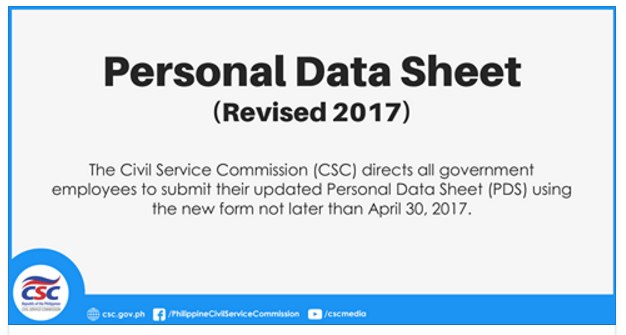
Sample Application Letter /Resume /CV for Teachers
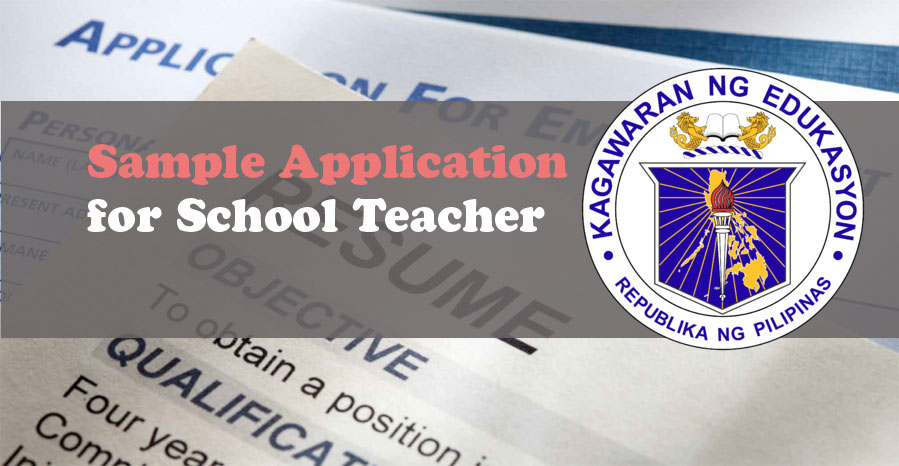
2017 Palarong Pambansa Organization, General Information and Technical Guidelines

- Facebook Group
- Facebook Page
- e-SLM vesion2

National Mathematics Program (NMP)
- Grade 1 NMP Lesson Scripts
- Grade 10 NMP Lesson Scripts
- Grade 2 NMP Lesson Scripts
- Grade 3 NMP Lesson Scripts
- Grade 4 NMP Lesson Scripts
- Grade 5 NMP Lesson Scripts
- Grade 6 NMP Lesson Scripts
- Grade 7 NMP Lesson Scripts
- Grade 8 NMP Lesson Scripts
- Grade 9 NMP Lesson Scripts
Most Downloaded
- MATATAG Curriculum Guide SY 2024-2025
- Daily Time Record (eDTR)
- Electronic Class Record
- Enrollment Form (BEEF) SY 2024-2025
- Confirmation Slip SY 2024-2025
- Enrollment Guidelines 2024-2025
- Learning Activity Sheets
- New Sick Leave Form 6
- Self-Learning Modules (SLM)
- Teachers Guide 2021-22
- Your 700+ PowerPoint Templates
Suggested Titles for Action Research related to effective classroom management.
Suggested titles for action research related to effective classroom management. .
Here are a few possible action research titles related to effective classroom management. You may email us if you wish to know more about the presented topics - the introduction, abstract, background, rationale, and other parts of each title. Guide questions and sample questionnaires are also available.
Parts of the Action Research Proposal should be related to and supportive of each other and appropriate for the research question(s).
The following are broad ideas from which potential Action Research topics can be derived for exploration concerning your practice. •attendance •inclusion •school climate •behavior/discipline •media influence •student achievement •collaboration •mentoring •technology •counseling programs •motivation •teacher attrition •dropout prevention •parental involvement • team teaching • extracurricular participation •needs of at-risk students •professionaldevelopment
These topics were provided by DepEd Tambayan Experts. We guarantee that these titles are not yet utilized, and we can provide you original and plagiarism-free manuscripts as your guides or basis. (These are not for sale. Do not sell. For educational purposes only.)
- Comparing the Effectiveness of Different Classroom Management Strategies on Student Engagement and Learning Outcomes - DOWNLOAD Action Research Proposal
- "Exploring the Impact of Teacher Language on Classroom Management and Student Behavior" - DOWNLOAD Action Research Proposal
- "Using Self-Regulation Techniques to Enhance Student Self-Control and Classroom Management" - DOWNLOAD Action Research Proposal
- "Investigating the Effectiveness of Restorative Justice Practices in Addressing Classroom Misbehavior" - Download Link is being updated (please refresh or come back later)
- "Comparing the Effectiveness of Different Classroom Management Strategies on Student Engagement and Learning Outcomes"- Download Link is being updated (please refresh or come back later)
- "The Role of Classroom Environment in Facilitating Effective Classroom Management" - Download Link is being updated (please refresh or come back later)
- "Examining the Impact of Teacher Emotional Intelligence on Classroom Management and Student Behavior"- Download Link is being updated (please refresh or come back later)
- "Implementing Mindfulness Practices to Enhance Classroom Management and Student Well-being"- Download Link is being updated (please refresh or come back later)
- "Investigating the Impact of Student Ownership of Learning on Classroom Management and Student Motivation"- Download Link is being updated (please refresh or come back later)
- "The Relationship between Teacher-Student Relationships and Effective Classroom Management".- Download Link is being updated (please refresh or come back later)
- "Exploring the Effectiveness of Technology-Based Classroom Management Strategies on Student Behavior and Engagement"- Download Link is being updated (please refresh or come back later)
- "Examining the Impact of Culturally Responsive Classroom Management Practices on Student Achievement and Well-being"- Download Link is being updated (please refresh or come back later)
- "Implementing Peer-Mediated Interventions to Improve Classroom Management and Social Skills in Students with Disabilities"- Download Link is being updated (please refresh or come back later)
- "The Role of Teacher Self-Efficacy in Facilitating Effective Classroom Management and Student Behavior"- Download Link is being updated (please refresh or come back later)
- "Investigating the Use of Positive Framing and Positive Reinforcement in Promoting Pro-Social Behavior and Effective Classroom Management"- Download Link is being updated (please refresh or come back later)
- "Using Differentiated Instruction to Improve Classroom Management and Student Learning Outcomes"- Download Link is being updated (please refresh or come back later)
- "The Impact of Classroom Seating Arrangements on Student Behavior and Classroom Management"- Download Link is being updated (please refresh or come back later)
- "Examining the Role of Parental Involvement in Effective Classroom Management and Student Achievement"- Download Link is being updated (please refresh or come back later)
- "Implementing Universal Design for Learning (UDL) Principles to Enhance Classroom Management and Student Engagement"- Download Link is being updated (please refresh or come back later)
- "Investigating the Effectiveness of Classroom Management Professional Development on Teacher Practices and Student Behavior".- Download Link is being updated (please refresh or come back later)
- "The Impact of Classroom Rules and Procedures on Classroom Management and Student Behavior"- Download Link is being updated (please refresh or come back later)
- "Investigating the Use of Social and Emotional Learning (SEL) Strategies in Classroom Management"- Download Link is being updated (please refresh or come back later)
- "The Role of Teacher Feedback in Enhancing Classroom Management and Student Motivation"
- "Implementing Collaborative Learning Strategies to Improve Classroom Management and Student Achievement"
- "Examining the Effectiveness of Multi-Tiered Systems of Support (MTSS) in Addressing Classroom Behavior and Academic Needs".
- "Exploring the Effectiveness of Mindful Discipline in Classroom Management and Student Well-being"
- "Investigating the Relationship between Classroom Management and Teacher Burnout"
- "The Impact of Teacher Expectations on Classroom Management and Student Performance"
- "Examining the Effectiveness of Nonverbal Communication in Classroom Management"
- "Implementing Time Management Strategies to Improve Classroom Management and Student Learning"
- "The Role of Classroom Management in Facilitating Intrinsic Motivation in Students"
- "Investigating the Effectiveness of Restorative Practices in Addressing Bullying and Other Forms of Misbehavior"
- "The Impact of Classroom Management on Student Attendance and Punctuality"
- "Using Gamification Techniques to Enhance Classroom Management and Student Engagement"
- "Examining the Relationship between Classroom Management and Student Perceptions of Teacher Credibility".
- "The Role of Teacher Autonomy in Effective Classroom Management and Student Learning Outcomes"
- "Investigating the Effectiveness of Peer Feedback in Classroom Management and Student Behavior"
- "Using Positive Peer Pressure to Promote Classroom Management and Pro-Social Behavior"
- "Examining the Impact of Teacher Mindset on Classroom Management and Student Behavior"
- "Implementing Cognitive-Behavioral Therapy (CBT) Techniques to Improve Classroom Management and Student Well-being"
- "The Relationship between Classroom Management and Academic Achievement in At-Risk Students"
- "Investigating the Effectiveness of Trauma-Informed Classroom Management Practices in Supporting Students with Trauma Histories"
- "The Impact of Teacher Gender on Classroom Management and Student Behavior"
- "Using Mind Maps to Enhance Classroom Management and Student Learning"
- "Examining the Role of Student Choice in Effective Classroom Management and Student Motivation".
- "The Relationship between Classroom Management and Student Creativity"
- "Investigating the Impact of Classroom Management on Student Self-Regulation and Executive Functioning"
- "The Effectiveness of Positive Peer Relationships in Classroom Management and Student Engagement"
- "Examining the Use of Humor in Classroom Management and Student Behavior"
- "Implementing Differentiated Instruction to Enhance Classroom Management and Student Learning"
- "The Role of Teacher Reflection in Effective Classroom Management and Professional Development"
- "Investigating the Effectiveness of Collaborative Problem-Solving in Classroom Management and Student Behavior"
- "Using Mindfulness-Based Stress Reduction (MBSR) Techniques to Improve Classroom Management and Teacher Well-being"
- "The Impact of Classroom Management on Student Resilience and Coping Skills"
- "Examining the Effectiveness of Video Modeling in Classroom Management and Student Behavior".
- Investigating the Relationship between Classroom Management and Student Emotional Intelligence"
- "The Impact of Classroom Management on Student Academic Self-Efficacy and Achievement"
- "Using Collaborative Learning Strategies to Enhance Classroom Management and Social Skills in Students with Autism Spectrum Disorder"
- "The Role of Teacher Empathy in Effective Classroom Management and Student Behavior"
- "Examining the Effectiveness of Cooperative Learning in Classroom Management and Student Engagement"
- "Implementing Universal Design for Learning (UDL) Principles to Address Classroom Management Challenges in Inclusive Settings"
- "The Impact of Classroom Management on Student Perceptions of School Climate"
- "Investigating the Effectiveness of Mindfulness-Based Classroom Management Techniques on Teacher Stress and Burnout"
- "Using Social Network Analysis to Understand the Relationship between Classroom Management and Student Achievement"
- "Examining the Effectiveness of Technology-Based Classroom Management Interventions on Student Behavior and Academic Performance".
- The Impact of Classroom Management on Teacher Job Satisfaction and Retention"
- "Investigating the Effectiveness of Positive Behavior Interventions and Supports (PBIS) in Classroom Management and Student Behavior"
- "Using Peer Mentoring to Improve Classroom Management and Social Skills in Students with Emotional and Behavioral Disorders"
- "The Role of Teacher Mindfulness in Effective Classroom Management and Student Well-being"
- "Examining the Relationship between Classroom Management and Student Cultural Responsiveness"
- "Implementing Trauma-Sensitive Classroom Management Strategies to Support Students with Adverse Childhood Experiences (ACEs)"
- "The Impact of Classroom Management on Student Perceptions of Teacher Caring"
- "Investigating the Effectiveness of Social-Emotional Learning (SEL) Interventions in Classroom Management and Student Behavior"
- "Using Positive Reinforcement to Enhance Classroom Management and Student Motivation"
- "Examining the Relationship between Classroom Management and Student Executive Functioning Skills".
- "The Impact of Classroom Management on Student Academic Mindsets and Persistence"
- "Investigating the Relationship between Classroom Management and Student Self-Determination"
- "Using Growth Mindset Interventions to Improve Classroom Management and Student Engagement"
- "The Role of Teacher Feedback in Effective Classroom Management and Student Learning Outcomes"
- "Examining the Effectiveness of School-wide Positive Behavior Interventions and Supports (SW-PBIS) in Classroom Management and Student Behavior"
- "Implementing Culturally Responsive Classroom Management Strategies to Support Multilingual Learners"
- "The Impact of Classroom Management on Student Motivation and Academic Achievement in High-Poverty Schools"
- "Investigating the Effectiveness of Classroom Management Interventions on Students with Attention Deficit Hyperactivity Disorder (ADHD)"
- "Using Restorative Justice Practices to Address Classroom Management Challenges and Build Positive Relationships with Students"
- "Examining the Relationship between Classroom Management and Student Social-Emotional Learning Outcomes".
- "The Impact of Classroom Management on Student Academic Confidence and Risk-Taking Behaviors"
- "Investigating the Relationship between Classroom Management and Student Resilience"
- "Using Peer Tutoring to Enhance Classroom Management and Academic Achievement in High School Students"
- "The Role of Teacher-Student Relationships in Effective Classroom Management and Student Well-being"
- "Examining the Effectiveness of Mindfulness-Based Classroom Management Strategies on Teacher-Student Interactions"
- "Implementing Cooperative Discipline Strategies to Promote Effective Classroom Management and Student Responsibility"
- "The Impact of Classroom Management on Student Perceptions of Teacher Fairness"
- "Investigating the Effectiveness of Universal Design for Learning (UDL) in Addressing Classroom Management Challenges for Students with Disabilities"
- "Using Differentiated Instruction to Improve Classroom Management and Student Engagement in Heterogeneous Classrooms"
- "Examining the Relationship between Classroom Management and Student Emotional Regulation"
- "The Impact of Classroom Management on Student Attendance and Academic Performance"
- "Investigating the Effectiveness of Conflict Resolution Strategies in Classroom Management and Student Collaboration"
- "Using Brain-Based Learning Strategies to Enhance Classroom Management and Student Attention Span"

What is the Problem of number 1,2,3 and possible solution and tool to be used in this titles?
Post a Comment
Social Counter
- facebook count=667 K Follow
Featured Post
Deped national mathematics program (nmp) lesson scripts free download.
DepEd National Mathematics Program (NMP) Lesson Scripts Free Download Empower your reading instruction with our FREE lesson scripts designed...

Popular Posts

- DepED to implement flexible scheduling for teachers
- Free Online Training for Teachers from NEAP! Earn up to 15 CPD Units

DOWNLOADABLE RESOURCES
- Budget of Work
- Curriculum Guide
- Detailed Lesson Plan
- enhanced enrollment form
- Enhanced TIP Course Books
- learning activity sheet
- Modules with answer key
- Quarterly Assessment
- Reading Materials
- Remedial Reading
- RPMS Tools and Forms
- Rubric Assessment Tools
- school calendar 2021-2022
- school calendar 2022-2023
- Self-Learning Modules
- Summative Test
LATEST ISSUANCES
Deped updates, teacher resources.

Generating Topics for Action Research: A Comprehensive Guide for DepEd Personnel
Action research serves as a valuable instrument for educators to enhance their teaching methods and improve student learning outcomes. For Department of Education (DepEd) personnel in the Philippines, conducting action research is not only a crucial aspect of professional development but also contributes significantly to evidence-based decision-making in schools. This comprehensive guide aims to provide DepEd teachers and staff with detailed instructions on how to generate meaningful topics for action research projects that align with DepEd priorities and policies.
Table of Contents
Understanding Action Research in the DepEd Context
Action research in education is a systematic process where teachers examine their own classroom or school practices to address problems and enhance student learning. For DepEd personnel, it is essential that action research aligns with key department initiatives and priorities, including:
- Improving access to quality education
- Enhancing curriculum and instruction
- Strengthening assessment practices
- Supporting inclusive education
- Promoting 21st century skills
- Improving school governance and management
- DepEd MATATAG Agenda
The primary objective of action research projects is to produce practical, actionable insights that can be applied to enhance teaching and learning in Philippine schools. These projects should generate evidence that informs policy and practice at various levels, from the classroom to the school and the broader education system.
The Importance of Action Research for DepEd Personnel
Action research plays a crucial role in the professional development of DepEd personnel and the improvement of the Philippine education system. Here are some key reasons why action research is important:
- Evidence-based practice : Action research allows educators to make informed decisions based on systematic inquiry and evidence, rather than relying solely on intuition or tradition.
- Continuous improvement : By engaging in action research, teachers can continuously reflect on and improve their teaching practices, leading to better student outcomes.
- Contextualized solutions : Action research enables educators to develop solutions that are tailored to their specific classroom, school, or community context.
- Professional growth : Conducting action research helps teachers develop critical thinking, problem-solving, and research skills, contributing to their professional growth.
- Contribution to knowledge : Action research findings can contribute to the broader body of educational knowledge and inform policy decisions at the local and national levels.
- Empowerment : Action research empowers teachers to take an active role in improving their practice and the education system as a whole.
Steps for Generating Action Research Topics
1. reflect on classroom experiences and challenges.
The initial step in developing an action research topic is to engage in thoughtful reflection on your teaching experiences and identify areas that require improvement or further investigation. Consider the following questions to guide your reflection:
- What specific challenges do you encounter in your classroom on a daily basis?
- In which subject areas or skills do your students consistently struggle?
- What teaching strategies have you been curious about but haven’t had the opportunity to explore or refine?
- Which aspects of the curriculum do you find particularly challenging to implement effectively?
- How could you better support the diverse learning needs of your students?
- What patterns or trends have you noticed in student behavior or performance that warrant further exploration?
To facilitate this reflective process, consider keeping a detailed journal where you can document your observations, thoughts, and ideas over an extended period. This practice can help you identify recurring themes or issues that may form the basis of potential research questions.
2. Analyze School Data and Priorities
A thorough examination of available school data can reveal trends or issues that merit further investigation. Consider analyzing the following types of data:
- Student assessment results (both formative and summative)
- Attendance and dropout rates
- Disciplinary incidents and patterns
- Parent and student feedback from surveys or focus groups
- School improvement plans and progress reports
- Teacher performance evaluations
- Resource allocation and utilization data
When analyzing this data, look for:
- Patterns or trends over time
- Discrepancies between different student groups
- Areas where your school is performing below expected levels
- Successful initiatives that could be expanded or replicated
Consider how your research could address school-wide priorities or contribute to your school’s improvement goals. For example, if data shows that student engagement is low in certain subjects, you might explore innovative teaching strategies to increase participation and interest.
3. Review DepEd Policies and Initiatives
To ensure that your action research aligns with and supports departmental priorities, it is crucial to familiarize yourself with current DepEd policies, programs, and reform initiatives. Key documents to review include:
- K to 12 Curriculum Guides
- Results-Based Performance Management System (RPMS) indicators
- School-Based Management (SBM) policies
- Inclusive education frameworks
- DepEd Orders on curriculum, instruction, and assessment
- National and local education development plans
- Pilot Implementation of the MATATAG Curriculum
- Regional and Division Educational Development Plan
When reviewing these documents, consider:
- How are these policies currently being implemented in your school or classroom?
- What challenges have you observed in implementing these policies?
- Are there gaps between policy intentions and actual practice?
- How could your research provide evidence on the implementation or impact of these policies in your specific context?
For example, if you notice that the implementation of Mother Tongue-Based Multilingual Education (MTB-MLE) is challenging in your school, you might consider researching effective strategies for integrating mother tongue instruction in a multilingual classroom.
4. Consult the Basic Education Research Agenda
The DepEd Basic Education Research Agenda outlines priority research areas to inform policy and practice. Reviewing the current agenda can help you align your action research with broader educational priorities. The main themes of the research agenda include:
- Teaching and Learning
- Effective pedagogical approaches
- Curriculum implementation
- Use of technology in education
- Development of 21st century skills
- Child Protection
- School safety and security
- Mental health and well-being
- Prevention of bullying and violence
- Human Resource Development
- Teacher professional development
- School leadership and management
- Performance evaluation and incentives
- School-based management
- Community engagement
- Resource allocation and utilization
When considering these themes, think about how your action research could contribute to these broader areas of inquiry. For example, under the Teaching and Learning theme, you might explore the effectiveness of specific instructional strategies in developing critical thinking skills among your students.
5. Collaborate with Colleagues
Engaging in discussions with your fellow teachers, department heads, and school leaders can provide valuable insights and perspectives on potential research ideas. Consider the following approaches to collaboration:
- Organize brainstorming sessions with your department or grade level team
- Present your initial research ideas at staff meetings and solicit feedback
- Form a professional learning community focused on action research
- Seek mentorship from experienced researchers or educators in your school or district
Collaborative action research involving a team of teachers can have a broader impact and provide multiple perspectives on the research question. For example, you might work with teachers across grade levels to investigate the vertical alignment of a specific skill or content area in your school’s curriculum.
6. Utilize Learning Action Cells (LACs)
Learning Action Cells (LACs) are an important school-based continuing professional development strategy in the DepEd system. LACs can be an excellent platform for generating and refining action research topics. Here’s how you can use LACs in your action research process:
- Use LAC sessions to discuss classroom challenges and brainstorm potential research topics
- Present your research ideas to your LAC group for feedback and suggestions
- Collaborate with LAC members on joint action research projects
- Share preliminary findings and get input on data analysis and interpretation
- Use LACs as a venue for disseminating your research results and discussing implications for practice
Remember that LACs are designed to be collaborative, reflective spaces where teachers can learn from each other and improve their practice collectively.
7. Narrow Your Focus
After generating a list of potential topics through reflection, data analysis, policy review, and collaboration, it’s time to narrow your focus. Consider the following criteria when selecting your final research topic:
- Feasibility: Can the research be completed with available time and resources?
- Consider the scope of data collection and analysis required
- Assess the availability of necessary resources (e.g., materials, technology, support staff)
- Evaluate potential ethical considerations or approval processes
- Relevance: Does it address an important need in your classroom or school?
- Align the topic with identified priorities from your reflection and data analysis
- Consider the potential impact on student learning outcomes
- Assess the topic’s relevance to current educational challenges in your context
- Potential impact: How will the results improve teaching and learning?
- Estimate the number of students or teachers who could benefit from the research
- Consider the long-term implications of potential findings
- Assess the scalability of any interventions or strategies you plan to study
- Alignment: Does it support school and DepEd priorities?
- Ensure the topic aligns with your school improvement plan
- Verify that the research question addresses DepEd policy priorities
- Consider how the findings could inform broader educational policy or practice
Develop a specific, focused research question that can be investigated through classroom-based inquiry. Your research question should be:
- Clear and concise
- Specific and measurable
- Relevant to your teaching context
- Answerable within the timeframe and resources available
Sample Action Research Topics for DepEd Personnel
To illustrate the process of generating topics, here are some sample action research questions aligned with DepEd priorities, along with brief explanations of their relevance and potential impact:
Curriculum and Instruction
- How can differentiated instruction strategies improve learning outcomes in heterogeneous Grade 3 Math classes?
- Relevance: Addresses the challenge of teaching diverse learners in a single classroom
- Potential impact: Could lead to more effective teaching strategies for mixed-ability groups
- What is the impact of integrating local indigenous knowledge into the Grade 5 Araling Panlipunan curriculum?
- Relevance: Aligns with DepEd’s focus on culturally responsive education
- Potential impact: Could enhance student engagement and cultural preservation
- How can project-based learning enhance student engagement in Junior High School Science?
- Relevance: Addresses the need for more hands-on, inquiry-based learning in science education
- Potential impact: Could improve student interest and achievement in STEM subjects
- How effective are formative assessment techniques in improving student writing skills in Grade 8 English?
- Relevance: Focuses on enhancing a critical skill area through ongoing assessment
- Potential impact: Could lead to improved writing instruction and student performance
- What is the impact of student self-assessment practices on learning outcomes in Senior High School core subjects?
- Relevance: Aligns with DepEd’s goal of developing independent, reflective learners
- Potential impact: Could enhance students’ metacognitive skills and academic performance
- How can performance-based assessment be implemented effectively in K to 3 Mother Tongue classes?
- Relevance: Addresses the need for appropriate assessment in mother tongue instruction
- Potential impact: Could improve the evaluation of language skills in early grades
Inclusive Education
- What strategies are most effective for supporting learners with disabilities in mainstream Grade 6 classrooms?
- Relevance: Aligns with DepEd’s commitment to inclusive education
- Potential impact: Could improve educational outcomes for students with disabilities
- How can differentiated instruction address the needs of gifted learners in mixed-ability Grade 9 classes?
- Relevance: Focuses on supporting advanced learners within inclusive classrooms
- Potential impact: Could enhance the engagement and achievement of high-ability students
- What is the impact of using assistive technologies on the participation of learners with visual impairments?
- Relevance: Addresses the use of technology to support inclusive education
- Potential impact: Could improve access to education for students with visual impairments
21st Century Skills
- How can collaborative learning strategies develop critical thinking skills in Grade 10 students?
- Relevance: Focuses on developing essential 21st century skills
- Potential impact: Could enhance students’ ability to analyze and solve complex problems
- What is the effect of integrating digital literacy activities on student engagement in Junior High School subjects?
- Relevance: Addresses the need for technology integration in education
- Potential impact: Could improve students’ digital competencies and overall engagement
- How can project-based learning enhance the problem-solving skills of Senior High School students?
- Relevance: Aligns with DepEd’s goal of developing work-ready graduates
- Potential impact: Could improve students’ ability to apply knowledge in real-world contexts
School Management
- What strategies can improve parent engagement in School Governing Council activities?
- Relevance: Focuses on strengthening school-community partnerships
- Potential impact: Could enhance parental involvement and support for school initiatives
- How can data-driven decision-making processes enhance instructional leadership among school heads?
- Relevance: Addresses the need for evidence-based school management
- Potential impact: Could improve the effectiveness of school leadership and resource allocation
- What is the impact of mentoring programs on the professional growth of beginning teachers?
- Relevance: Focuses on supporting new teachers and improving teacher retention
- Potential impact: Could enhance the quality of instruction and teacher job satisfaction
Conducting Your Action Research
Once you have selected your research topic and formulated a clear research question, it’s time to plan and conduct your action research. Here are some key steps to consider:
- Develop a research plan : Outline your research methodology, including data collection methods, timeline, and resources needed.
- Review ethical considerations : Ensure that your research adheres to ethical guidelines, especially when working with students or sensitive data. This includes obtaining informed consent from participants and protecting their rights and privacy.
- Collect data : Implement your data collection plan, which may include surveys, observations, interviews, or analysis of student work.
- Analyze your findings : Examine your data to identify patterns, trends, and insights related to your research question.
- Implement changes : Based on your findings, develop and implement strategies to address the issue you’re researching.
- Monitor and evaluate : Continuously assess the impact of your interventions and make adjustments as needed.
- Share your results : Communicate your findings with colleagues, school leaders, and the broader education community through presentations, reports, or publications.
Accessing the Basic Education Research Fund (BERF)
The Basic Education Research Fund (BERF) is an important resource for DepEd personnel conducting action research. Here are key points to remember about BERF:
- BERF supports education research initiatives, including funding for approved research proposals, capacity building, research dissemination, and utilization.
- Research proposals must align with the Basic Education Research Agenda.
- There are specific eligibility criteria for proponents, including being a regular/permanent DepEd employee with no pending administrative cases.
- The fund has different maximum amounts for research at different levels (national, regional, division, school).
- The release of funds is output-based and depends on the submission and acceptance of deliverables.
To apply for BERF:
- Develop a research proposal aligned with DepEd priorities
- Submit your proposal to the appropriate research committee (National, Regional, or Schools Division)
- If approved, follow the guidelines for fund release and project implementation
Research Ethics and Special Considerations
Adhering to ethical standards is crucial when conducting action research. Key ethical considerations include:
- Obtaining informed consent from all participants (including parents/guardians for minors)
- Protecting the privacy and confidentiality of participants
- Ensuring that the research does not cause harm to participants
- Being transparent about the research process and findings
For research involving Indigenous Cultural Communities (ICCs):
- Adhere to the rights-based approach and principles of inclusion, participation, and empowerment
- Obtain permission from the community through recognized representatives
- Recognize the community as co-authors and co-owners of research on their Indigenous Knowledge Systems and Practices (IKSPs) and Indigenous Learning Systems (ILSs)
- Share copies of the study and subsequent publications with the community
Research Management Process
Understanding the research management process within DepEd is important for successfully conducting your action research:
- Research Committees : Familiarize yourself with the roles of the National Research Committee (NRC), Regional Research Committee (RRC), and Schools Division Research Committee (SDRC).
- Proposal Submission : Submit your research proposal to the appropriate committee based on your research scope.
- Evaluation Process : Your proposal will undergo initial screening and committee evaluation based on specific criteria.
- Approval and Implementation : If approved, you’ll receive notification and guidance on next steps.
- Monitoring and Evaluation : The research committees will monitor the progress of your research.
- Reporting and Dissemination : Submit your research findings and participate in dissemination activities as required.
Dissemination and Utilization of Research Results
Sharing your research findings is a crucial step in the action research process. Consider the following strategies for dissemination:
- Present your findings at school or division-level meetings
- Share your results during LAC sessions
- Participate in research conferences or forums organized by DepEd
- Contribute to DepEd research journals or bulletins
- Use your findings to inform school improvement plans or policy recommendations
To maximize the impact of your research:
- Clearly communicate the practical implications of your findings
- Provide specific recommendations for implementation
- Collaborate with colleagues to apply your findings in different contexts
- Follow up on the implementation of your recommendations and assess their impact
Monitoring and Evaluating Your Action Research
Continuous monitoring and evaluation of your action research project is essential for its success:
- Develop a monitoring plan : Outline key milestones and indicators of progress for your research.
- Regular self-assessment : Periodically review your research process and make adjustments as needed.
- Seek feedback : Engage with colleagues, mentors, or research committee members for input on your progress.
- Document challenges and learnings : Keep a record of obstacles encountered and lessons learned throughout the research process.
- Assess impact : Evaluate the effectiveness of any interventions or changes implemented as a result of your research.
- Reflect on the process : Consider how the action research experience has influenced your teaching practice and professional growth.
Generating meaningful action research topics requires careful reflection, thorough analysis, and thoughtful alignment with school and system priorities. By following the steps outlined in this comprehensive guide, DepEd personnel can develop research questions that not only improve their own practice but also contribute valuable evidence to enhance teaching and learning across Philippine schools.
Action research empowers educators to be agents of positive change in their classrooms and schools. As you embark on your action research journey, remember that the process is as valuable as the outcome. The skills of inquiry, reflection, and evidence-based decision-making that you develop through action research will serve you well throughout your career as an educator.
By sharing your findings with colleagues and education leaders, you can multiply the impact of your research and contribute to the continuous improvement of the Philippine basic education system. Your action research has the potential to inform policy, improve teaching practices, and ultimately enhance the learning experiences and outcomes of students across the country.
Copyright Notice :
This article, “Generating Topics for Action Research: A Comprehensive Guide for DepEd Personnel,” was authored by Mark Anthony Llego and published on August 9, 2024.
Mark Anthony Llego
Mark Anthony Llego, a visionary from the Philippines, founded TeacherPH in October 2014 with a mission to transform the educational landscape. His platform has empowered thousands of Filipino teachers, providing them with crucial resources and a space for meaningful idea exchange, ultimately enhancing their instructional and supervisory capabilities. TeacherPH's influence extends far beyond its origins. Mark's insightful articles on education have garnered international attention, featuring on respected U.S. educational websites. Moreover, his work has become a valuable reference for researchers, contributing to the academic discourse on education.
Leave a Comment Cancel reply
Can't find what you're looking for.
We are here to help - please use the search box below.
Academia.edu no longer supports Internet Explorer.
To browse Academia.edu and the wider internet faster and more securely, please take a few seconds to upgrade your browser .
Enter the email address you signed up with and we'll email you a reset link.
- We're Hiring!
- Help Center

Sample Action Research Proposal

An action proposal.
Related Papers
Andrew Johnson
This chapter excerpt describes the salient elements and basic process of action research.
Abstract Recent action research books are reviewed. I give attention to books on appreciative inquiry, action science, systems approaches and action learning. Community, health, education and organizational applications are included. Major action research journals are noted.
Margie Comrie
Action Research
In this, the third in a series of two-yearly reviews (see also Dick, 2004, and Dick, 2006), I identify some of the action research literature that has appeared in books and edited collections over approximately the past two years. After an overview of the general action research literature I gather together other relevant literature under the following headings: action learning; community-based participatory research; youth work; educational action research; appreciative inquiry; and action science. I conclude the review with a very brief look at action research journals and special issues, other literature of interest, and an attempt to divine present and emergent trends.
ARIEL MONTECALBO
Action research is a type of research related to one’s professional practice. In the field of education, it can be defined as the process of studying a school, classroom, or teaching-learning situation with the purpose of understanding and improving the quality of actions or instruction. In this sense, it is the ultimate form of teacher reflection. Described in this chapter expert are the basic elements and the steps of action research.
Administrative Science Quarterly
Gerald Susman
Abstract This review of recent action research books covers the period from about mid-2004 to mid-2006, complementing an earlier review (Dick, 2004). After noting some important recent additions to the action research literature, I address the literature on several different applications of action research including education, community, participatory development, and organizations. There are briefer sections on other topics. Action research journals and special issues of other journals are also identified.
Kenneth Zeichner
Irene Lacia
Loading Preview
Sorry, preview is currently unavailable. You can download the paper by clicking the button above.
RELATED PAPERS
Sandy Whitelaw
Michał Zawadzki
Ryan N . Ludovice EdD
Polly Adams
Jack Whitehead
DR. JASHIM UDDIN AHMED
Rosina J Thomas
International Journal of Applied Sciences: Current and Future Research Trends
Khaled El Haj Ismail , adane tsegaye
Retrieved August
Kalyana Mitra, LBU Student Form
Prof.Gitu Giri
Valerie Brown
Ismail Raob
JALT Applied Materials Series
Gregory Hadley
Victoria J Palmer
International Journal of Adult Vocational Education and Technology
Victoria J Marsick
Arthur R Sanford III
Kristy's Salas
Restu Fitrian Aristama
Building Action Research in Higher Education
Marcus Seels
The Learning Organization
Ortrun Zuber-Skerritt
RELATED TOPICS
- We're Hiring!
- Help Center
- Find new research papers in:
- Health Sciences
- Earth Sciences
- Cognitive Science
- Mathematics
- Computer Science
- Academia ©2024
- Toggle Accessibility Statement
- Skip to Main Content

DepEd calls for research proposals to strengthen BE-LCP under BERF grant
August 26, 2021 – To further strengthen the Basic Education-Learning Continuity Plan (BE-LCP), the Department of Education (DepEd) has announced a call for research proposals in line with the theme Supporting and Assessing Learning Continuity and Mother Tongue-Based Multilingual Education Materials and Development.
“As we are nearing the opening of our School Year 2021-2022, we need to reinforce and strengthen our current BE-LCP. Research is vital for us to keep moving forward and evolving. This initiative will help DepEd address pressing issues that we are encountering, especially in relation to the delivery of quality of education,” Education Secretary Leonor Magtolis-Briones said.
DepEd, through the Policy Research and Development Division (PRDD) under Planning Service (PS), has opened its submission of research proposals to reinforce the link of research to education processes through utilization, dissemination, and advocacies.
The chosen proposal will be given a grant of up to P500,000, which will be distributed in three (3) tranches, under the Basic Education Research Fund (BERF). The initiative aims to improve the policies, programs, and activities relevant to the implementation of the BE-LCP.
In support of the BE-LCP, there are seven areas of priority identified for the research; (1) Most Essential Learning Competencies; (2) Implementation of multiple learning delivery modalities/ improved learning environment; (3) Preparing teachers and school leaders/ teacher upskilling and reskilling; (4) Health standards in school and workplace; (5) Reconfiguration of annual opening activities and partnerships; (6) Finance, procurement, and delivery; and (7) Monitoring, evaluation, and adjustments.
“In this call for national research, we would like to specifically invite everyone [to conduct] research on specific areas that were identified in our call for proposals,” Planning Service Director Roger B. Masapol noted during the virtual orientation for the research proposals held on July 29, 2021.
To be eligible for the grant, applicants, whether teaching or non-teaching personnel, should hold a regular job position in the Department, should not have any pending administrative cases, and should not have yet availed the grant for the current year. Each team can only have a maximum of three (3) members.
“We hope everyone will participate and submit their proposal. The intention will be to help DepEd build the evidence so that we can further craft better policies that will address the pressing problems that we are currently facing,” added Dir. Masapol.
PRRD encouraged personnel from different field offices and DepEd Central Office to cultivate more inclusive research, drawing from the grassroots of the Department to improve the quality of education in all corners of the country.
Submissions of the soft copy of the proposals are until August 29, 2021.
For more information on application procedure, fund guidelines, and provisions of the program, participants can refer to the DepEd Order No. 16, s. 2017: http://www.deped.gov.ph/wp-content/uploads/2017/03/DO_s2017_016.pdf .

IMAGES
VIDEO
COMMENTS
Writing Your Action Research Proposal: A Step-by-Step Guide. Following the guidelines provided in DepEd Order No. 16, s. 2017, here's a comprehensive guide to writing your action research proposal: 1. Title. Create a concise, descriptive title that clearly indicates the focus of your research. It should: Reflect the main research question or ...
DepEd Action Research is a process of systematic, reflective inquiry to improve educational practices or resolve problems in any operating unit (i.e. school, classroom, office). ... DepEd Research Proposals should also follow the prescribed outline/format stipulated in the Research Management Guidelines. Proponent/s ...
I'm a BERF grantee and this is my own action research proposal that you can download as your reference in doing your own action research.You can download the...
ACTION RESEARCH PROPOSAL. TEMPLATE. DOCUMENT NO. VERSION NO. 1.1. REVISION NO. 0.2. DATE: 5 January 2021 . Page 1 of 10. DATA PRIVACY NOTICE: Data and information in this form are intended ...
Conducting Classroom-Based Action Research. Action research offers a powerful method for teachers to systematically investigate and improve their own classroom practices. The following steps provide a guide to conducting effective action research within the DepEd context: 1. Identify a Problem or Area for Improvement
ACTION RESEARCH Session 6.1 Perparing the Action Research Proposal 6 2 You may also mention any data or current research in the area of your topic and highlight the gap that you plan to address in the Action Research. 3 It is also here that you cite any theory, related studies, DepEd policies, or laws that would strengthen your claims about the intervention or treatment that you
Watch the step-by-step GUIDE on how to write an Action Research ProposalAbstract: http://instabrightgazette.mystrikingly.com/blog/improving-attendance-and-ac...
Step 2:Read, Research, Reflect. Framing a good question. Avoid yes or no questions. Avoid questions to which you already know the answer. A good question is. free of educational jargons, use simple everyday words, do not prejudge the result. Characteristics of Good Research Questions.
This action research proposal aims to improve students' academic performance at Villafuerte-Peña High School in Camarines Sur, Philippines through the use of inquiry-based learning. Currently, the average student performance is 83.16%. The proposal will study students' current performance levels, teachers' implementation of inquiry-based learning, and determine if student performance ...
GUIDELINES IN WRITING THE ACTION RESEARCH 1. Use a short white folder. Below is the cover page. DepEd Letter head ACTION RESEARCH PROPOSAL ON ? (Title) Prepared by: JUAN DE LA CRUZ Master Teacher I Researcher 2. Second page are the signatories 3. Before you write an action research, think of a problem that exist in your school/classroom.
ACTION RESEARCH Guidelines on Writing the Action Research Proposal 4 1 Reference entries should include the following information: a name of the author(s) b year of publication and, where applicable, the exact date of publication c full title of the source d city of publication (for books) e name of the periodical or book in which the article or essay appears
Parts of the Action Research Proposal should be related to and supportive of each other and appropriate for the research question (s). The following are broad ideas from which potential Action Research topics can be derived for exploration concerning your practice. These topics were provided by DepEd Tambayan Experts.
Proposal and Full Paper Tutorial of Action Research (DepEd Format) DepEd Order: https://www.deped.gov.ph/2017/03/20/do-16-s-2017-research-management-guidelin...
The Basic Education Research Fund (BERF) is an important resource for DepEd personnel conducting action research. Here are key points to remember about BERF: BERF supports education research initiatives, including funding for approved research proposals, capacity building, research dissemination, and utilization.
Standardized action research guidelines, workflows, and other research procedures have been crafted and delivered to the field for adoption. The Division promotes researches which highlight access, quality, and governance in pursuant to DepEd Order No. 43, s.2015 or the Revised Guidelines for the Basic Education Research Fund (BERF). Specifically,
Andrew Johnson. Action research is a type of research related to one's professional practice. In the field of education, it can be defined as the process of studying a school, classroom, or teaching-learning situation with the purpose of understanding and improving the quality of actions or instruction.
DepEd hereby establishes the Research Management Guidelines (RMG) to provide guidance in managing research initiatives in the national, regional, schools division, and school levels. The enclosed policy also improves support mechanisms for research such as funding, partnerships, and capacity building. This policy which is built on the gains in ...
An Action Research Proposal. December 2016; Chapter: 1; Authors: ... wri tes an act ion research proposal for the distribut io n of the fin al q uestionn aires. ... (DepEd Order No. 73, s.2012):
TEMPLATE-ACTION-RESEARCH-PROPOSAL_DEPED-FORMAT - Free download as Word Doc (.doc / .docx), PDF File (.pdf), Text File (.txt) or read online for free. This action research proposal outlines a study to address issues observed in a school related to a particular topic. The proposal identifies gaps in student performance based on school data and proposes an intervention strategy informed by ...
This action research proposal aims to improve students' academic performance at Villafuerte-Peña High School in Camarines Sur, Philippines through inquiry-based learning. The proposal outlines conducting a study to determine students' current performance levels and teachers' implementation of inquiry-based learning. It will then implement inquiry-based strategies, conduct training, and ...
August 26, 2021 - To further strengthen the Basic Education-Learning Continuity Plan (BE-LCP), the Department of Education (DepEd) has announced a call for research proposals in line with the theme Supporting and Assessing Learning Continuity and Mother Tongue-Based Multilingual Education Materials and Development. "As we are nearing the ...
The Seven Research Writing Process in DepEd 1. The Researcher submits PROPOSAL to the School Head. 2. The School Head forwards the proposal to the SDO. 3. The SDO evaluates the proposal and ...